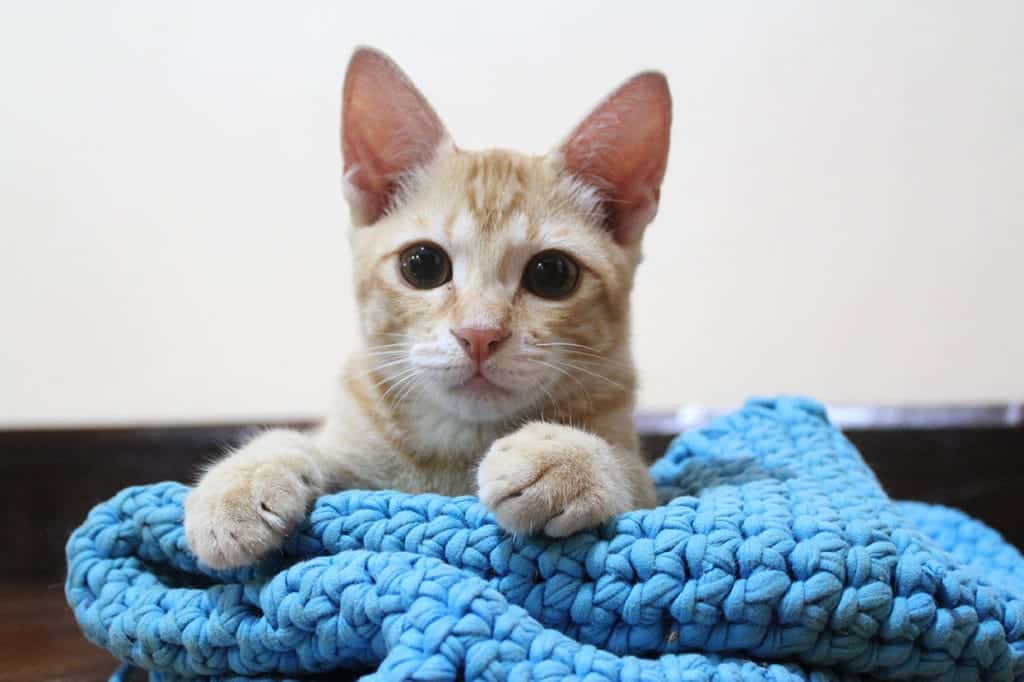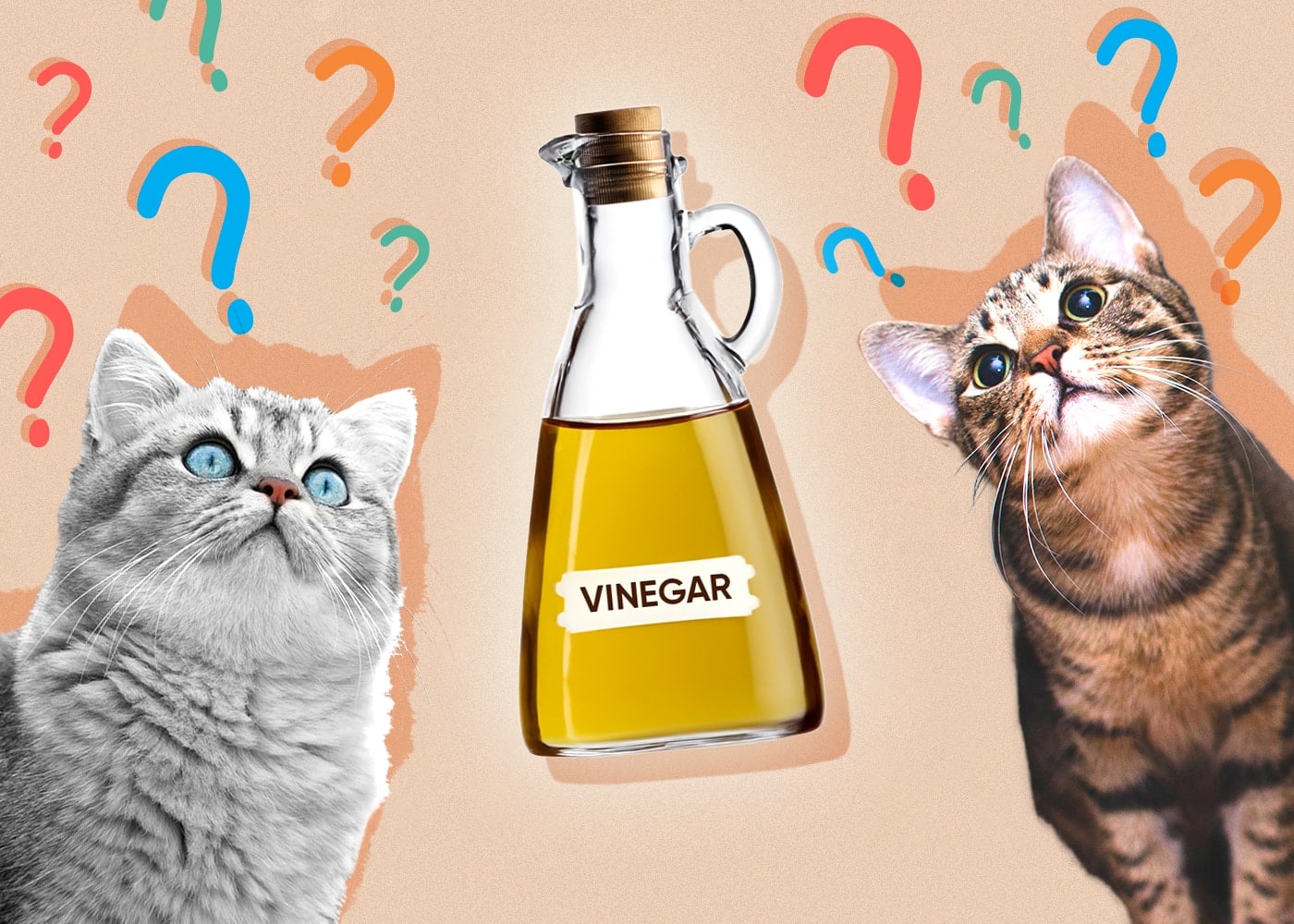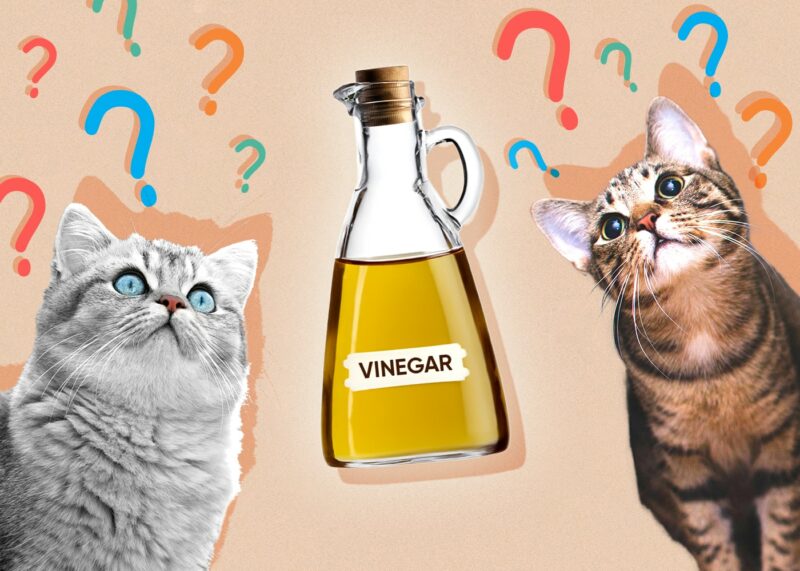People often use vinegar in cooking, and apple cider vinegar is a popular health food drink, so it’s natural to wonder if vinegar is safe to feed to your cat. The short answer is yes. If your cat wants to drink vinegar, it won’t be harmful to them, but there are several factors to consider before making it a regular part of your cat’s diet. Keep reading as we look at the nutritional value of vinegar and the potential side effects that your cat might experience, so you can feel good about the food that you are serving to your pet.

Is Vinegar Bad for My Cat?
Vinegar is not harmful to your cat, but its acidic taste and smell are not likely to be inviting. Too much vinegar can potentially lead to an upset stomach or mouth sores, but it’s extremely unlikely that your cat will drink enough to cause problems, even if they enjoy it.
Is Vinegar Good for My Cat?
There is no nutritional value in vinegar that is helpful to cats. However, it can be beneficial to reduce the risk of a urinary tract infection due to its ability to inhibit bacterial growth. Apple cider vinegar is the best choice because your pet is more likely to drink it.
Vinegar is much more useful to cats outside the body. It can kill bacteria in food, on the skin, and on surfaces in your home that your cat frequents. You can use it to treat fungal infections like ringworm, and it can help wounds heal faster by keeping them clean and free of disease. It’s also a natural cat repellant, so you can use it to train your cat to stay away from certain areas in your home or discourage stray cats from coming into your yard.


Putting Vinegar to Work
Urinary Tract Infections
If your cat is prone to urinary tract infections, you can try to reduce the risk by getting them to drink some apple cider vinegar. We recommend placing a teaspoon or two in a bowl of water and letting them lap it up each day. If they won’t drink it, you can add the vinegar to their favorite wet food, which might convince them to give it a try.
Fleas and Fungus
If your cat is suffering from fleas or a skin fungus like ringworm, vinegar can help eliminate the problem. You can give your cat a vinegar bath to relieve signs, but you will need to be careful not to get it in their eyes, or it could cause burning, which will make your cat more resistant to the idea in the future. The smell might also be too much for some people, so you can use a cloth soaked in vinegar instead. Use the cloth to work the vinegar through your cat’s fur and onto the skin. You may need to repeat this process a few times, and if you have fleas, you will need to treat your home and the cat.
Cleaner and Germ Killer
White vinegar is an excellent cleaner. It lifts stains and grime, doesn’t streak, and kills germs at a fraction of the cost of most cleaners. Fill a 16-ounce spray bottle with 8 ounces of vinegar and 8 ounces of water for an amazing cleaner and germ killer that works great around the litter box and for countertops.
Cat Repellent
Most cats hate the smell of vinegar and will actively avoid it. If you have a cat that is scratching up the furniture, you can try to use the spray cleaner you made to spray the surface that you don’t want to be scratched (be sure to test it on a small spot first, to verify that it won’t stain).

Most cats will run at the smell. You can also fill a small saucer with vinegar and place it in an area where you don’t want the cat to go, and they will usually stay a few feet away. A bowl of vinegar will work outside as well.

Summary
While your cat can eat vinegar, they most likely won’t. If you want to use it to reduce the risk of urinary tract infections, we recommend starting as early as possible to get them used to it, but its sour smell will usually leave the cat making funny faces. Vinegar does an excellent job of killing fleas, but if you don’t also remove them from your home, they will jump back on and continue to multiply. It’s possible to treat your home with vinegar, but it’s a big job, so we recommend a commercial product that keeps them off your cat so they all die.
Vinegar will also help clear up ringworm and make a cat’s fur softer, and it works great as a cat deterrent.
Featured Image: focal point, Shutterstock






